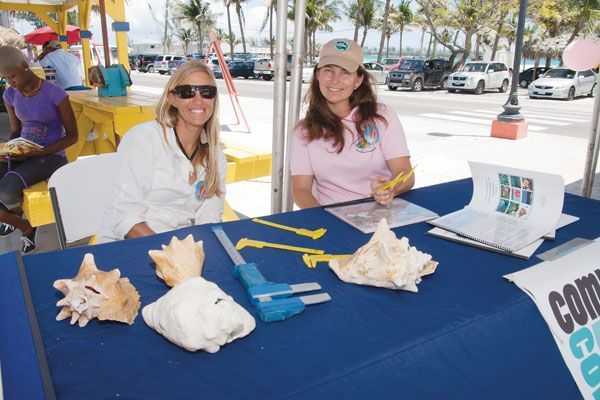The Bahamas National Trust and conservation partners BREEF, Friends of the Environment, Community Conch, the Cape Eleuthera Institute, the Bahamas Department of Marine Resources, The Nature Conservancy, The Moore Bahamas Foundation, Harbourside Marine and the Sandals Foundation have come together in a national campaign whose ultimate goal is a sustainable queen conch industry in The Bahamas. Elsewhere in the region, queen conch numbers are so low that they are said to be commercially extinct: there might be conch in the water; but nowhere near enough for a commercially viable fishery. The Bahamas Conchservation Campaign seeks to bring together researchers, government agencies, concerned private entities and most importantly the Bahamian public to share information, and to both give and receive feedback on what might be the best practices to ensure that The Bahamians and their guests, continue to enjoy conch dishes, curios and the income they generate.
Why do we need Conchservation?
• Harvesting juvenile conch, sometimes called rollers, is a common practice in The Bahamas. Each juvenile conch taken is potentially thousands of new conchs that will never grow to maturity and reproduce.
• Surveys of conch grounds at numerous locations in The Bahamas indicate a decline in the number of queen conchs. When the number of conch in an area decreases, they are less likely to find mates. One such area near Lee Stocking Island in the Exumas has seen a 91% decrease in the number of conch per hectare between 1991 and 2011.
• Queen conch is important to The Bahamas as a cultural icon and also as a source of income. Conch fishing in The Bahamas is worth 4-5 million dollars annually.
• Conch fisheries in Florida and other parts of the Caribbean have collapsed mainly due to overfishing. The Bahamas is one of few places that still has a viable conch fishery so there is a market to export conch from The Bahamas to other parts of the world. This increases fishing pressure on wild conch stocks in the country.
• The Bahamas is an archipelago that spans approximately 100,000 square miles of ocean. There are limited resources and manpower to police marine resources in the country. Each person should develop personal conservation strategies for queen conch, and other marine resources.
More can be found on Conchservation, including bits of conch history, at www.facebook.com/conchservation. To find out how you can help email bnt@bnt.bs.
[easy-social-share]
